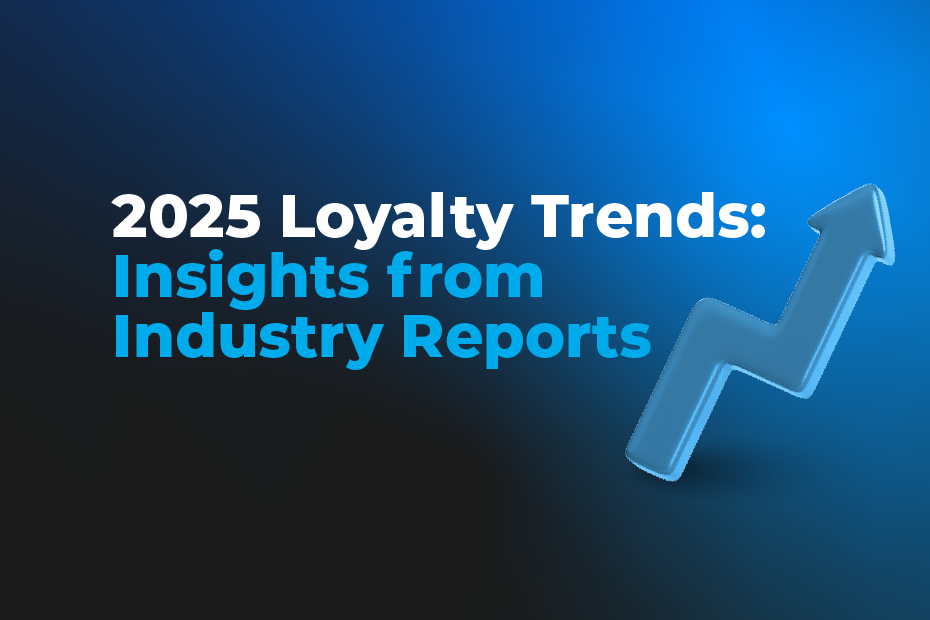As loyalty programs evolve, 2025 marks a major shift in how brands approach retention and customer value. Consumer expectations are rising, technology is advancing, and loyalty strategy is moving from static point systems to dynamic, data-driven ecosystems.
This article highlights five loyalty trends shaping 2025, based on industry reports and real-world shifts across consumer loyalty programs, retail technology, CRM and marketing automation platforms.
Trend 1: Personalization powered by AI
Customer loyalty programs in 2025 will rely heavily on AI-driven personalization. It’s no longer enough to send a birthday discount or generic email. Brands are turning to machine learning to segment customers by behavior, predict intent, and automate decision-making across campaigns.
AI is now being used to:
- Personalize rewards programs in real time
- Drive customer journey marketing through behavioral triggers
- Improve loyalty management by forecasting which members are at risk of churn
- Power CRM marketing automation for more effective engagement
Personalization at this level not only improves relevance it increases the importance of customer loyalty as a measurable growth lever.
Trend 2: Flexible reward systems
Modern loyalty programs are moving away from rigid, one-size-fits-all models. Instead, brands are building flexible reward ecosystems that offer a mix of incentives.
Key features include:
- Tiered and volume-based loyalty mechanics
- Hybrid models with points, cashback, and perks
- Micro-rewards tied to behaviors like reviews or referrals
- Customizable reward preferences via loyalty apps
This flexibility allows brands to create more compelling consumer loyalty programs and accommodate different customer types: from high-frequency buyers to occasional users.
Notably, referral programs are being reimagined as a core loyalty component, and many retailers are integrating gamification strategies to encourage repeat engagement.
Trend 3: Strategic brand partnerships
In 2025, loyalty programs are no longer confined to a single brand or platform. Businesses are forming strategic loyalty partnerships that allow customers to:
- Earn and redeem points across ecosystems
- Participate in joint promotions or shared marketplaces
- Enjoy loyalty benefits across multiple lifestyle categories
These coalition loyalty programs increase perceived value for customers while reducing the operational load for any one brand. For retailers, this creates new opportunities to collaborate, cross-sell, and increase customer retention beyond individual touchpoints.
For example, a bank loyalty program may offer rewards that can be redeemed in fuel stations, fashion stores, or digital services driving everyday utility.
Trend 4: Emotional engagement over transactions
While transactional rewards remain relevant, leading loyalty programs are prioritizing emotional engagement. This shift reflects a growing understanding that customer loyalty is not just about discounts, it’s about relationships.
In 2025, brands are focusing on:
- Purpose-driven marketing and brand values alignment
- Exclusive offers and access for top-tier members
- Member communities and user-generated content inside loyalty apps
- Experience-based benefits tied to customer lifestyle
The most successful programs reward how customers interact with the brand, not just how much they spend. This makes customer loyalty cards and apps more than just tools they become part of the brand experience.
Trend 5: Experimentation and agile loyalty
Static programs are being replaced by agile loyalty strategies designed to evolve. Brands are using real-time data and KPI tracking to adjust their loyalty programs based on what works.
Key tactics include
- Running A/B tests on different reward models
- Using KPI dashboards to monitor engagement, redemptions, and churn
- Adapting campaign rules based on seasonal behavior or promotions
- Integrating loyalty mechanics directly into sales and marketing automation platforms
This agility not only improves campaign effectiveness but also enables teams to build loyalty KPIs directly into their marketing workflow. Many brands are using KPI software to evaluate loyalty ROI and automate performance reports.
2023 vs 2025: what’s changed in loyalty priorities
| Loyalty Focus | 2023 Priority | 2025 Priority |
| Personalization | Name-based offers | AI-powered CRM segmentation |
| Rewards | Static points and discounts | Flexible, hybrid, and behavior-based rewards |
| Program structure | Standalone programs | Ecosystem-based loyalty partnerships |
| Engagement drivers | Savings and promotions | Emotional connection and brand purpose |
| Optimization | Manual program updates | Agile campaigns powered by BI and KPIs |
Looking ahead
Loyalty in 2025 will be defined by adaptability, intelligence, and the ability to deliver value on the customer’s terms. From gamification and referral mechanics to CRM and marketing automation integrations, brands must be prepared to experiment, personalize, and continuously optimize.
Loymax supports this shift by offering a platform that enables retailers to create a loyalty program that evolves with their business. With built-in BI, automation tools, and advanced segmentation, our platform empowers companies to deliver loyalty programs that align with modern customer expectations and measurable business goals.
Plan smarter loyalty strategies with Loymax
Looking to adapt your loyalty program to today’s trends?
Loymax helps retailers implement flexible, data-driven loyalty solutions tailored to evolving customer behaviors.
Explore how we can support your 2025 strategy: request a consultation

